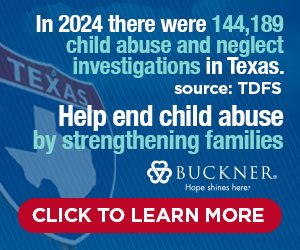In the two years since the U.S. Supreme Court overturned Roe v. Wade, the number of abortions performed in Texas has dropped dramatically. But a study published in a medical journal revealed infant deaths in Texas increased since the Texas Heartbeat Act became law, several months prior to the court decision.
The Texas Tribune reported June 24 the number of abortions performed in Texas dropped 99.89 percent since the U.S. Supreme Court issued its ruling in Dobbs v. Jackson Women’s Health Organization.
An examination of state data, available only through January 2024, revealed the average number of abortions performed in Texas per month fell from about 4,400 to five, The Texas Tribune noted. In no month were more than 10 abortions recorded, and in some months, there were none.
Groups opposed to abortion marked the two-year anniversary of the Supreme Court’s Dobbs decision with thanksgiving.

“Texas Baptists’ Christian Life Commission celebrates the two-year anniversary of the Dobbs ruling and the overturning of the Roe v. Wade decision. We are encouraged by the sharp decline of abortions in Texas and see this as a significant step in advancing a culture of life in our state,” said John Litzler, CLC public policy director.
“While Texas experienced a decline in fertility and birth rates in the five years leading up to the Dobbs decision, there were 16,147 more babies born in Texas in 2022 than in 2021. This means that Texas, more than ever before, needs to increase the amount of support and resources we extend to young families.”
Joe Pojman, executive director of Texas Alliance for Life, said, “We are proud that, when Roe was overturned, Texas was well prepared to protect mothers and unborn babies from the tragedy of abortion.
 “Hundreds of pregnancy centers, maternity homes and adoption agencies have provided alternatives to abortion to hundreds of thousands of women, and the Human Life Protect Act, a top legislative goal of our organization in 2021, provides complete legal protection to unborn babies from abortion.”
“Hundreds of pregnancy centers, maternity homes and adoption agencies have provided alternatives to abortion to hundreds of thousands of women, and the Human Life Protect Act, a top legislative goal of our organization in 2021, provides complete legal protection to unborn babies from abortion.”
“As we celebrate this anniversary, we reaffirm our commitment to building a culture of life in Texas—to make abortion unthinkable as we educate Texans on the vast resources and support available to help women and families in need. The more women become aware of the resources available, the less likely they will be to seek chemical abortion drugs trafficked illegally into our state, putting their health, lives and future fertility on the line, or travel out of state to end the life of their unborn child through abortion.”
Sign up for our weekly edition and get all our headlines in your inbox on Thursdays
Increases in infant and neonatal deaths
However, some research indicates restrictive abortion laws may have “unintended consequences.”
A study published June 24 in JAMA Pediatrics pointed to “unexpected increases in infant and neonatal deaths” in Texas after the Texas Heartbeat Act, SB 8, became law on Sept. 1, 2021.That legislation essentially banned abortions after the point when cardiac activity can be detected in an embryo or fetus—typically six weeks after conception.
In the peer-reviewed study, researchers from Johns Hopkins Bloomberg School of Public Health examined 94,720 recorded infant deaths in Texas and 28 comparison states.
Between 2021 and 2022, infant deaths in Texas increased 12.9 percent, compared to a 1.8 percent increase elsewhere in the United States.
Within a year after the Texas Heartbeat Act became law, infant deaths rose from 1,985 to 2,240.
“Congenital anomalies, which are the leading cause of infant death, also increased in Texas but not the rest of the U.S.,” the study stated.
Specifically, the number of babies born with congenital anomalies increased about 23 percent in Texas at a time when they decreased about 3 percent nationwide.
“Congenital anomalies” covers a wide range of conditions—some that can be corrected surgically, some that present manageable challenges, and some that are life-threatening.
Researchers concluded “restrictive abortion policies may have important unintended consequences in terms of trauma to families and medical cost as a result of increases in infant mortality.”
According to provisional data in a “vital statistics rapid release report” from the National Center for Health Statistics, infant mortality rose 3 percent nationally in 2021—the first increase in the rate since 2001. From 2002 to 2021, the infant mortality rate nationally had dropped 22 percent.
In Texas, lawmakers have passed “significant legislation aimed at reducing infant and maternal mortality,” Litzler noted.
“This includes the Thriving Texas Families Program and increased Medicaid coverage for postpartum mothers which took effect March 1, 2024, and extends Medicaid benefits to a full year from what was previously only two months,” he said.
“The CLC has been unwavering in its support of these crucial laws and continues to advocate for legislation that supports both mothers and children. We look forward to additional opportunities to champion policies that will promote the flourishing of all Texans in the 89th Texas legislative session.”
















We seek to connect God’s story and God’s people around the world. To learn more about God’s story, click here.
Send comments and feedback to Eric Black, our editor. For comments to be published, please specify “letter to the editor.” Maximum length for publication is 300 words.